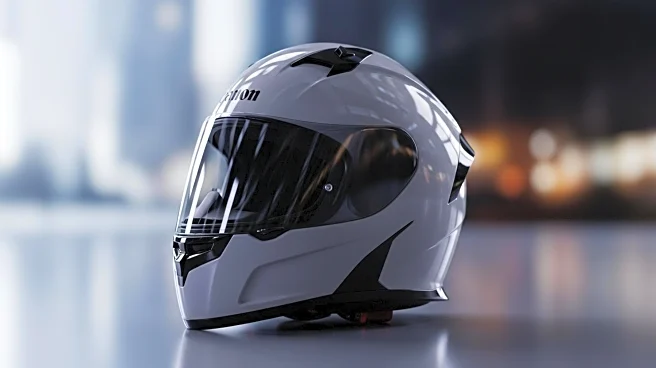What's Happening?
Honda, a leading global car manufacturer, is facing criticism from some of its longtime fans who feel the brand has shifted its focus away from producing fun-to-drive, affordable cars with strong reliability. Auto enthusiast Vell argues that Honda has been moving towards larger SUVs, hybrids, and vehicles with mainstream appeal, rather than the compact two-door coupes with VTEC engines that once defined the brand's reputation among performance fans. Despite this criticism, Honda's sales numbers are on the rise, with the company reporting increased sales in the U.S. for June and the second quarter of 2025. Honda's bestsellers include the CR-V, HR-V, Pilot, and Passport SUVs, and the Civic hybrid had its best June ever.
Why It's Important?
The shift in Honda's focus reflects broader market trends where car manufacturers are prioritizing mass-market vehicles over enthusiast-focused models. This change is driven by the need to generate higher revenue from mainstream vehicles, which sell in larger numbers compared to niche enthusiast cars. While this strategy may benefit Honda's overall sales and growth, it risks alienating a segment of its loyal customer base who value the brand's traditional sporty offerings. The criticism highlights the tension between maintaining brand identity and adapting to market demands, a challenge faced by many automotive companies.
What's Next?
Honda has teased a revival of the Prelude, potentially as a hybrid or fully electric vehicle, which may not resonate with longtime fans who prefer traditional VTEC engines. The company may continue to balance its offerings between mass-market appeal and maintaining some sporty models like the Civic Si and Civic Type R. The automotive industry will likely see ongoing debates about the balance between innovation, environmental considerations, and maintaining brand heritage.
Beyond the Headlines
The shift towards hybrid and electric vehicles is part of a larger trend in the automotive industry driven by environmental concerns and regulatory pressures. Honda's move reflects the industry's adaptation to these changes, which may lead to long-term shifts in consumer preferences and the types of vehicles that dominate the market. The criticism from enthusiasts underscores the cultural and emotional connection consumers have with brands, which can influence purchasing decisions beyond mere functionality.










